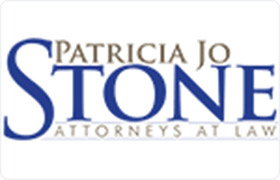Burlington Estate Lawyer, Colorado
Sponsored Law Firm
-
 x
x

Click For More Info:
-
Patricia Jo Stone, Attorneys at Law
19751 E Mainstreet Ste. 200 Parker, CO 80138» view mapEstate Law Over 35 Years Of Experience
For over 35 years, our firm has provided affordable legal services to individual and business clients.
800-708-9521
Not enough matches for Burlington Estate lawyer.
Below are all Burlington lawyers.
Katherine Marie Stolz
State Government, Government, Trusts, Estate
Status: In Good Standing Licensed: 34 Years
 Patricia Stone Parker, CO
Patricia Stone Parker, CO AboutPatricia Jo Stone, Attorneys at Law
AboutPatricia Jo Stone, Attorneys at Law Practice AreasExpertise
Practice AreasExpertise
